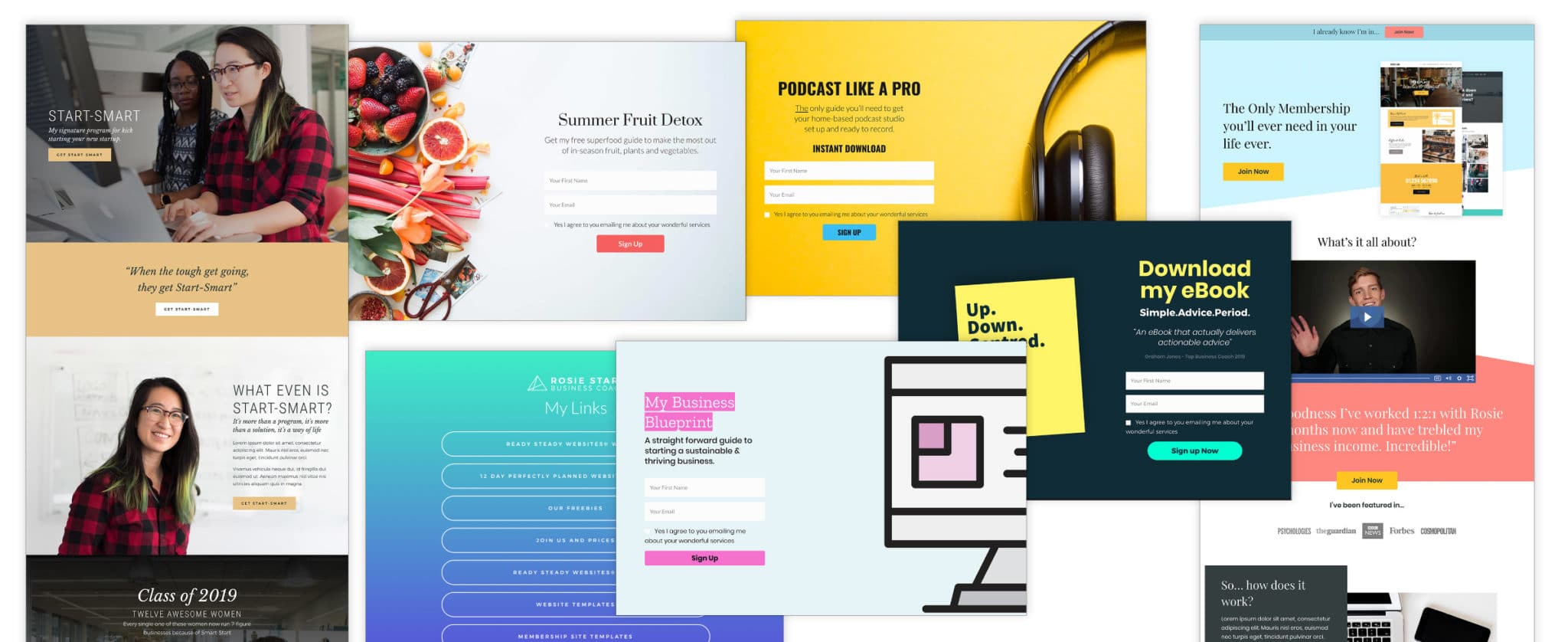
How to Generate Leads Through a Website
All too often when people create a website they put some information on there about them and what they do, some contact details and then that’s it, they leave it there and think that’s that job ticked off. But a website should be doing so much more. If you get it really right a website can grow your business for you but the least it should be doing is generating leads for your business. But the big thing business owners want to know is, how to generate leads through a website.
Before we get to that, let’s answer this question…
What Does “Website Leads” Mean?
A website lead is someone showing interest in working with your business who comes to you through your website. This could be in the form of someone contacting you to find out more which could be booking a call, filling in a contact form or sending an email. It could also be someone joining your email list or someone using a free resource or attending a free workshop or course.
Strategies for Getting Website Leads or More Website Leads
To be most effective in getting website leads or more website leads if you’re already getting some, it’s important to have a plan and to be consistent with what you are doing online.
We believe that building an email list is the biggest thing you should focus on to generate leads through a website. Building an email list should be a relatively easy way of getting leads. If you can create something free that is really useful for your target market and you are proactive at getting it out there, then people will happily sign up with their email address to get it.
Once you have those people on your email list you can nurture them by sending them a second freebie that you think will also help or by giving them a chance to get to know you a bit better through a free workshop or a free call.
We also think a blog, vlog or podcast is integral to a website lead generation strategy. Letting people know about a new post or episode on social media, at networking or through your emails is an easy, non-salesy way of sending people to your website. It’s also a great way of giving more useful information and showcasing your expertise but it’s important that at the end of every post or episode you have a relevant call to action.
What is a Call to Action?
A call to action is when you ask someone to do something on your website. So, at the end of a post or episode it’s important to invite your website visitors to continue browsing your website so they don’t just leave again. You could suggest another post that might interest them, let them know about a free resource or tell them about a product or service that’s relevant to the post. By doing this you are guiding your website visitor into becoming a lead.
It’s also very important to have clear call to actions throughout your website so that people can easily take action to become a lead or even to jump in and buy from you or use your service.
Put All of This Together to Get More Website Leads
If you put new, interesting content out regularly and consistently to bring traffic to your website, which you promote and then once your website visitors are on your site, it’s very clear to them how you can help them and clear where they need to click to join your list or get in contact with you then you should start to generate leads through your website.
To convert a high percentage of your website visitors into leads, you need to make sure you get the landing page right that people get to once they click on the call to action. This is the page that has to convince them to sign up. On this page you need to get the layout right and also your messaging to make it clear how they will benefit from signing up. Some people find this part of generating leads really easy but others really struggle with this bit and feel really despondent when they put a new free resource out there and then the leads don’t come in.
If you’re worried about getting this bit right or know your current landing pages could do with being refined then our Create a Brilliant Landing Page that Converts course will help you. We also run regular free workshops to get you on track with your website, find out what our next one is here.

